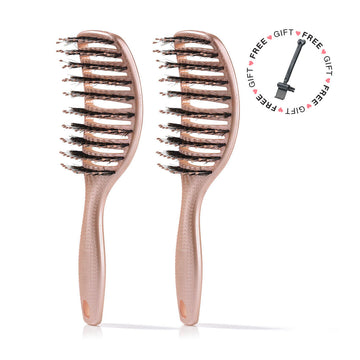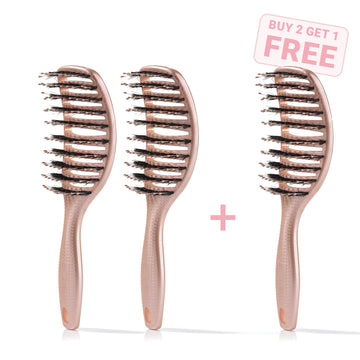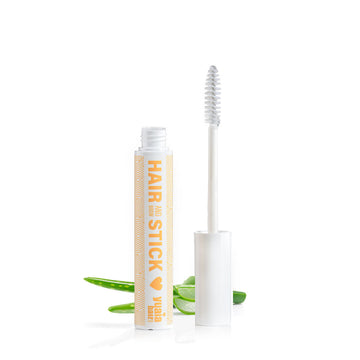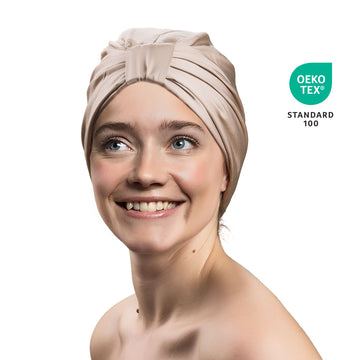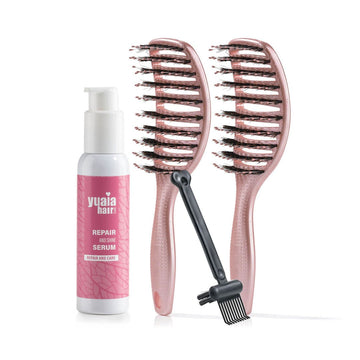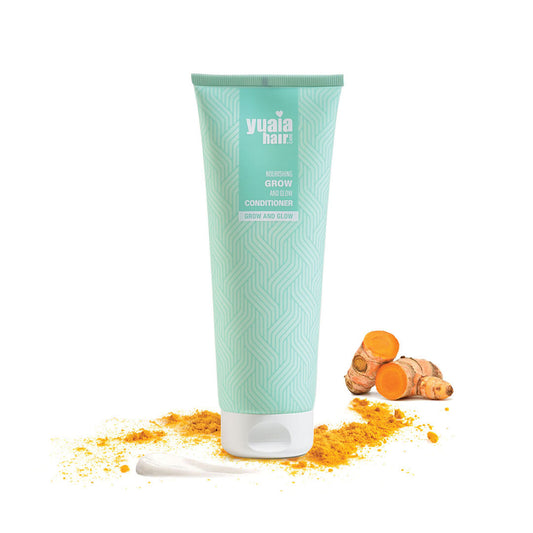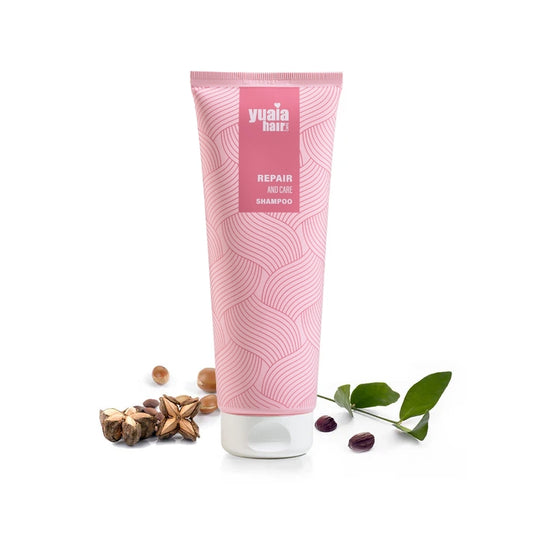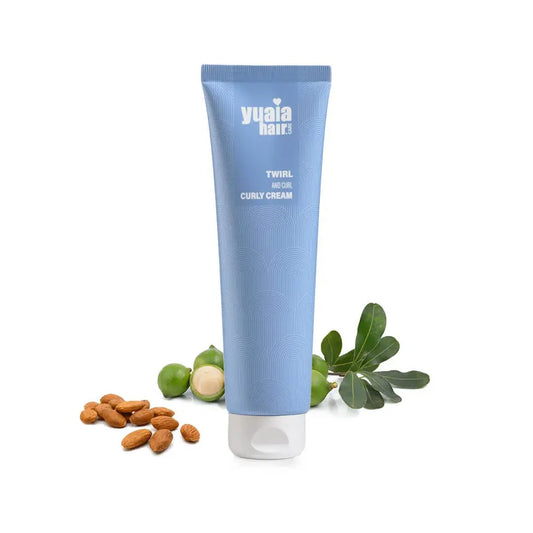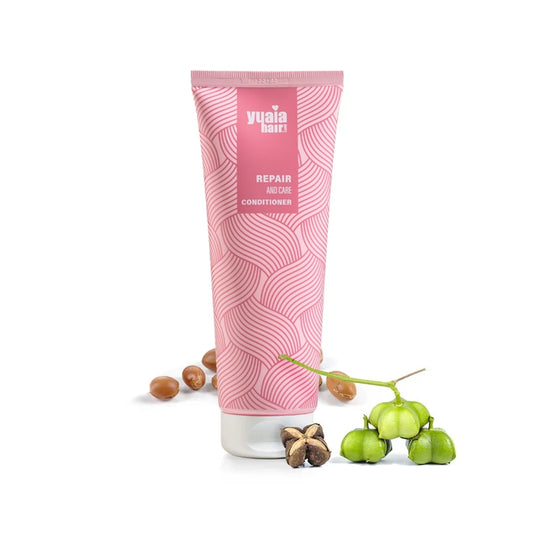
Can conditioner be used without shampoo? Explore the benefits of co-washing

por Nanna bundgaard | 11. November 2025 | Tiempo de lectura: 6 minutos
Lea más sobre el autorIn recent years, the concept of using conditioner without shampoo, commonly known as co-washing, has gained traction among individuals seeking gentler hair care routines. This method is particularly popular among those with dry, curly, or textured hair, as it offers a way to cleanse and moisturize without stripping away the hair's natural oils.
What is co-washing?
Co-washing, or conditioner washing, involves using a conditioner or a specially formulated cleansing conditioner to clean the hair instead of traditional shampoo. This approach focuses on maintaining the hair's natural moisture balance, making it an appealing option for those whose hair is prone to dryness or frizz. By opting for co-washing, individuals can enjoy softer, more manageable hair without the harsh effects of some shampoos.
Why skip shampoo?
Many people choose to skip shampoo in favor of co-washing to preserve their hair's natural oils and moisture. Traditional shampoos often contain sulfates and other detergents that can be drying, particularly for those with curly or textured hair. Co-washing offers a gentler alternative, allowing for regular cleansing while keeping the hair hydrated and healthy.
Is co-washing right for you?
Before deciding if co-washing is suitable for your hair type and lifestyle, it's important to consider your individual needs. Co-washing can be especially beneficial for:
- Dry or damaged hair: Co-washing helps retain moisture, making it ideal for hair that needs extra hydration.
- Curly or textured hair: This method supports the natural curl pattern by reducing frizz and maintaining moisture.
- Color-treated hair: Co-washing can help protect color-treated hair from fading by minimizing the use of harsh detergents.
For those interested in exploring co-washing, it's essential to choose the right products. Using a conditioner that suits your hair type and understanding the frequency of use can make a significant difference in achieving the desired results. Additionally, incorporating a sulfate-free shampoo occasionally can help prevent product buildup and ensure a clean scalp.
Benefits of co-washing
Co-washing offers a variety of benefits that make it an attractive option for many looking to maintain their hair health. One of the primary advantages is moisture retention. Unlike traditional shampoos, which can strip the hair of its natural oils, co-washing helps to keep these oils intact. This is especially beneficial for those with hair that tends to be dry or frizzy, as it helps to maintain a healthy moisture balance.
Additionally, co-washing simplifies the hair care routine. By eliminating the need for both shampoo and conditioner, it saves time and reduces the number of products required. This streamlined approach is appealing for individuals with busy lifestyles who still want to care for their hair effectively.
For those with sensitive scalps, co-washing can be a gentler alternative. Some shampoos contain harsh detergents that can irritate the scalp, leading to discomfort or allergic reactions. Co-washing avoids these issues by using conditioner, which is less likely to cause irritation.
Considerations and potential drawbacks
While co-washing has its benefits, there are also considerations to keep in mind. One potential drawback is product buildup. Because conditioners do not cleanse as thoroughly as shampoos, there can be an accumulation of oils and product residues over time. This can lead to a heavy feeling in the hair or even scalp issues if not addressed.
To mitigate this, occasional use of a clarifying shampoo is recommended. This helps to thoroughly cleanse the scalp and remove any buildup, maintaining a healthy hair environment.
Furthermore, co-washing may not be suitable for everyone. Individuals with fine or oily hair might find that co-washing leaves their hair limp or greasy. For these hair types, a more traditional approach with regular shampooing might be necessary to maintain volume and cleanliness.
Types of conditioners for co-washing
Choosing the right type of conditioner is crucial for successful co-washing. Standard rinse-out conditioners can be used, but many prefer specialized co-wash products or cleansing conditioners designed to provide both moisture and light cleansing. These products offer a balanced solution that helps maintain hair health while ensuring adequate cleansing.
It's important to avoid using deep conditioners or leave-in conditioners for the co-washing step. These products are not formulated for cleansing and could contribute to product buildup if used in place of a regular or cleansing conditioner.
Integrating co-washing into your routine
To effectively integrate co-washing into your hair care routine, consider balancing it with occasional shampoo use. This approach helps to prevent buildup while still reaping the benefits of co-washing. Adjusting the frequency of co-washing based on your individual hair and scalp needs is also important. Listen to your hair's response and tweak your routine accordingly.
For those with curly hair, using a product like our Twirl and Curl curly cream can enhance the benefits of co-washing by defining curls and reducing frizz, complementing the moisturizing effects of the co-wash.
Obtenga un código de descuento del 10% que le envíe
Recibe los mejores consejos y trucos para tu cabello de Lotte y Nanna 🥰
Frequently asked questions
Can co-washing replace shampoo entirely?
While co-washing can be a great way to maintain moisture and reduce the use of harsh detergents, it may not completely replace shampoo for everyone. It's important to occasionally use a clarifying shampoo to ensure the scalp is thoroughly cleansed and free from buildup.
How do I know if co-washing is working for me?
Signs that co-washing is benefiting your hair include improved moisture levels, reduced frizz, and a healthier scalp. If you notice your hair feeling softer and more manageable, co-washing may be a good fit for your routine.
What should I do if my hair feels heavy after co-washing?
If your hair feels heavy or weighed down after co-washing, consider using a clarifying shampoo to remove any buildup. This can help refresh your hair and restore its natural bounce.
How often should I co-wash?
The frequency of co-washing depends on your hair type and needs. For those with dry or curly hair, co-washing a few times a week may be beneficial. Adjust the frequency based on how your hair responds and incorporate shampoo as needed to maintain a clean scalp.
Can I use any conditioner for co-washing?
While standard rinse-out conditioners can be used, it's often better to choose a cleansing conditioner made specifically for co-washing. These products are formulated to provide both moisture and a gentle cleanse, ensuring your hair stays healthy and clean.
Reciba un código de descuento del 10%
Recibe los mejores consejos y trucos para tu pelo de Lotte y Nanna 🥰.
 Entrega en 2-4 días
Entrega en 2-4 días
 Más de 100.000 clientes satisfechos
Más de 100.000 clientes satisfechos
 Garantía de satisfacción
Garantía de satisfacción








